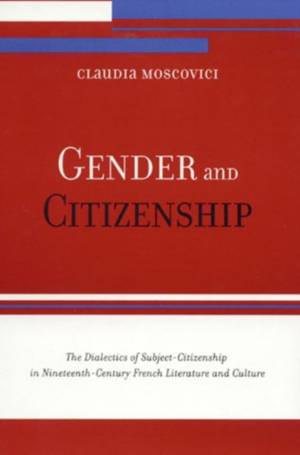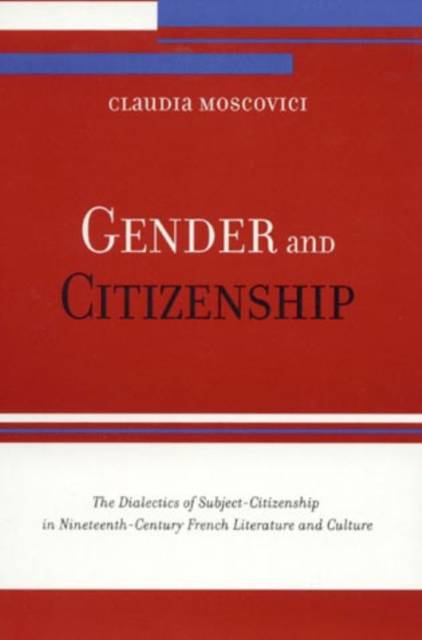
- Afhalen na 1 uur in een winkel met voorraad
- Gratis thuislevering in België vanaf € 30
- Ruim aanbod met 7 miljoen producten
- Afhalen na 1 uur in een winkel met voorraad
- Gratis thuislevering in België vanaf € 30
- Ruim aanbod met 7 miljoen producten
Zoeken
Gender and Citizenship
The Dialectics of Subject-Citizenship in Nineteenth Century French Literature and Culture
Claudia Moscovici
Hardcover
€ 127,45
+ 254 punten
Omschrijving
This text proposes a different understanding of how gender relations were reformulated by both male and female writers in 19th-century France. It analyzes the different versions of gendered citizenship revealing a shift from single definition of citizenship to a double dialectical one.
Specificaties
Betrokkenen
- Auteur(s):
- Uitgeverij:
Inhoud
- Aantal bladzijden:
- 160
Eigenschappen
- Productcode (EAN):
- 9780847696949
- Verschijningsdatum:
- 10/05/2000
- Uitvoering:
- Hardcover
- Afmetingen:
- 155 mm x 236 mm
- Gewicht:
- 354 g

Alleen bij Standaard Boekhandel
+ 254 punten op je klantenkaart van Standaard Boekhandel
Beoordelingen
We publiceren alleen reviews die voldoen aan de voorwaarden voor reviews. Bekijk onze voorwaarden voor reviews.








